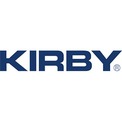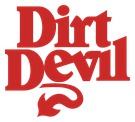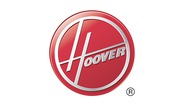Best Vacuum Cleaner Brands
Our research team vetted 12 brands rated by more than 5,160 verified customers. Read our guide to choose the best vacuum for you by comparing designs, filters and whether they have bags and cords. We also explain what accessories and features to look for, including special filters, attachments and extra technology.
- Our recommendations are based on what reviewers say.
- 4,337,775 reviews on ConsumerAffairs are verified.
- We require contact information to ensure our reviewers are real.
- We use intelligent software that helps us maintain the integrity of reviews.
- Our moderators read all reviews to verify quality and helpfulness.
Compare Top Vacuum Cleaner Reviews | ||||||
|---|---|---|---|---|---|---|
Specializes in cordless cleaners. Select from uprights, handhelds and canisters. Pricing starts around $300 for most models. Powered by rechargeable lithium-ion batteries. Warranties vary. 30-day risk-free trial. |  | Chat with a ConsumerAffairs decision guide Live agent | ||||
Manufactures upright, canister, stick, hand-held and robot vacuums. Pricing starts around $120 to $340. Canister cleaners priced above $150 come with a one-year limited warranty. 60-day return policy. | Chat with a ConsumerAffairs decision guide Live agent | |||||
Cordless and upright models start at $300 to $400. Comes with a two- to five-year warranty. Available features include LCD screen displays and up to 120 minutes of run time. 30-day return policy. |  | Chat with a ConsumerAffairs decision guide Live agent | ||||
Specializes in upright vacuums that can convert to canister or hand-held configurations. Pricing varies by distributor. Cleaning products and parts available online. Provides a “lifetime rebuild” program. |  | Chat with a ConsumerAffairs decision guide Live agent | ||||
Offers cordless, upright, hand-held and stick vacuums. Vacuums start under $50. Belts, bags, tools and attachments are also available online. Comes with a lifetime limited warranty. 30-day return policy. |  | Chat with a ConsumerAffairs decision guide Live agent | ||||
Offers upright, canister, hand-held, stick and cordless models, plus steam cleaners, air purifiers and cleaning formulas. Pricing and warranties vary. 30- to 60-day return policy. |  | Chat with a ConsumerAffairs decision guide Live agent | ||||
Uses water-based filtration technology to trap dirt and odors. No vacuum bag required. Works on carpet, hardwood, furniture and stairs. Available only through authorized distributors via in-home demonstrations. Costs vary. |  | Chat with a ConsumerAffairs decision guide Live agent | ||||
Select from corded, corded stick, cordless, hand-held, upright and robot vacuums. Pricing starts at $299 to $599. Mops, irons and steamers also available. Comes with a one- to five-year warranty. 60-day money-back guarantee. | Chat with a ConsumerAffairs decision guide Live agent | |||||
Offers a range of robot vacuums and mops. Features exclusive AeroForce technology. Pricing starts between $275 and $1,000. Comes with one-year limited warranty. Optional protection plan. 60-day trial period. |  | Chat with a ConsumerAffairs decision guide Live agent | ||||
Manufactures upright, cordless, stick and hand-held vacuums. Prices start at around $120. Carpet cleaners, steam cleaners and hard floor cleaners also available. Warranties vary by model. 30-day return policy. |  | Chat with a ConsumerAffairs decision guide Live agent | ||||
Our top picks
A vacuum may seem like a simple tool, but there are multiple styles available, all with various features, functions and levels of reliability. Choosing the right vacuum requires you to carefully compare a few models to see which fits your needs and preferences.
We’ve compared our favorite models from the 10 highest-rated vacuum brands on our site as of August 10, 2021, below.
- Hoover: WindTunnel T-Series
- Kirby: Avalir 2
- Dyson: Ball Animal 2
- Oreck: Cordless Vacuum with POD Technology
- Kenmore: 31220 Pet-Friendly CrossOver Max Upright Vacuum
- Dirt Devil: Vibe 3-in-1 Corded Bagless Stick Vacuum
- Rainbow: Rainbow Cleaning System
- Miele: Classic C1 Pure Suction PowerLine
- Bissell: ProHeat 2X Revolution Pet Pro
- iRobot: Roomba 690
- Vacuum type: Upright
- Bagless: No
- Cordless: No
- Anti-allergy filter: HEPA

Hoover’s WindTunnel T-Series may have limited features, but it’s a solid buy if you want an affordable vacuum offering a respectable level of performance.
As of publishing, it’s priced at around $150 on Amazon.
- Vacuum type: Upright/canister/hand-held
- Bagless: No
- Cordless: No
- Anti-allergy filter: HEPA

The Kirby Avalir 2 is marketed as a complete home cleaning system because it combines the capabilities of a vacuum, a carpet shampooer and a hard floor scrubber. It can also be configured as an upright vacuum, a canister vacuum or a hand-held vacuum.
Prices vary, but a reviewer in Vermont said they paid $1,800. We couldn’t find any for sale on Amazon, so to get a new one, you’ll likely have to schedule a demo through a local Kirby distributor.
- Vacuum type: Upright
- Bagless: Yes
- Cordless: No
- Anti-allergy filter: Washable lifetime filter

The Dyson Ball Animal 2 vacuum cleaner has a somewhat unique design and features that help with picking up pet hair from various surfaces, including steps and furniture. While it doesn’t have a HEPA filter, it is certified ”asthma & allergy friendly” by the Asthma and Allergy Foundation of America.
As a midrange vacuum that's ideal for pet hair, the Dyson Ball Animal 2 costs around $500 on Amazon at the time of publishing.
- Vacuum type: Stick
- Bagless: Yes
- Cordless: Yes
- Anti-allergy filter: POD filter

The Oreck Cordless Vacuum with POD Technology is a good option for those who want a lightweight vacuum they can take all around the house. This vacuum comes with over 40 minutes of run time on one charge, and the POD Refill system acts like a bag to contain dirt and dust. However, like all cordless vacuums, you will have to recharge it once that time is up.
As of publishing, it costs about $400 on Amazon.
- Vacuum type: Upright/canister
- Bagless: Yes
- Cordless: No
- Anti-allergy filter: HEPA

The Kenmore 31220 Pet-Friendly CrossOver Max Upright Vacuum can be used as either an upright vacuum or a canister vacuum. It also features a two-motor system and swivel steering for good overall control.
As of publishing, it costs about $140 on Amazon.
- Vacuum type: Stick/hand-held
- Bagless: Yes
- Cordless: No
- Anti-allergy filter: None

Dirt Devil’s 3-in-1 Corded Bagless Stick Vacuum is an affordable hand-held vacuum. It has a rinsable filter, but it also has a relatively short cord. It lacks an anti-allergy filter, too, making it better for cleaning up larger debris.
As of publishing, it goes for about $40 on Amazon.
- Vacuum type: Canister
- Bagless: Yes
- Cordless: No
- Anti-allergy filter: HEPA

The Rainbow Cleaning System uses a water-based filter, and it’s certified “asthma & allergy friendly” by the Asthma and Allergy Foundation of America. Accessories are available for different tasks, and the Rainbow Cleaning System comes with a dolly to make transporting the canister from room to room easier.
Pricing isn’t available online, and Rainbow only sells through authorized retailers, so you’ll have to contact the company for a free in-home presentation.
- Vacuum type: Canister
- Bagless: No
- Cordless: No
- Anti-allergy filter: None

Miele’s Classic C1 Pure Suction PowerLine is one of the company’s entry-level options. It’s a canister vacuum with several convenient features, including a 1,200-watt motor and a proprietary AirClean System to capture debris. Still, it lacks an anti-allergy filter.
This vacuum costs around $300 on Amazon at the time of publishing.
- Vacuum type: Upright
- Bagless: Yes
- Cordless: No
- Anti-allergy filter: None

Bissell’s ProHeat 2X Revolution Pet Carpet Cleaner isn’t technically a vacuum. However, it’s still a great way to get a deep clean when you have pet messes (like pet hair or stains) to deal with. It has a 3-inch Tough Stain Tool that allows for targeted treatment of problem areas and a Pet Stain Tool that cleans deep into carpet fibers. Just bear in mind that it lacks some functionality versus the better-equipped vacuums above.
This carpet cleaner costs around $200 on Amazon, as of publishing.
- Vacuum type: Robot
- Bagless: Yes
- Cordless: Yes
- Anti-allergy filter: None

The iRobot Roomba 690 is a solid choice if you’re looking for a robot vacuum. This Wi-Fi-connected vacuum offers up to 90 minutes of battery life, which it uses to clean your floor on its own. It also features multiple proprietary technologies to help it clean and navigate your home. However, it also lacks an anti-allergy filter.
As of publishing, this vacuum costs about $480 on Amazon.
How do you know what type of vacuum cleaner to buy?
When choosing which type of vacuum to buy, first consider your specific needs and preferences. Some models are better for thick carpeting, while others are better for hardwood floors. Likewise, certain models are better for containing allergens. Next, consider how easy each option is to empty and clean, where you plan to use it most and what warranty the manufacturer provides.
What features matter most?
Depending on your cleaning needs, you might prioritize having certain types of filters, attachments or technology.
Filters
- HEPA: People concerned about reducing allergens in their homes may want to consider buying vacuum cleaners that use HEPA (High-Efficiency Particulate Air) filtration. HEPA filters must remove at least 99.97% of particles measuring 0.3 microns in size.
- Paper: Some vacuums use disposable paper filters to remove debris over 3 microns in size. Paper bag filters with polypropylene liners are often more efficient at removing small particles, though.
- Cartridge: Cartridge filters catch large particles but may miss extremely small particles that cause some allergies. You can clean the cartridges to extend their usefulness, but they are ultimately disposable. Cartridge filters are commonly found in hand-held vacuums.
- ULPA: ULPA (Ultra-Low Particulate Air) filters are similar to HEPA designs, but they are designed to capture even smaller particles. Most ULPA filters, however, have shorter lifespans than HEPA filters.
- Filterless: A small selection of vacuums have filterless systems that do not require replacement. These tend to have higher prices, but they may fit your needs if you want a highly efficient vacuum.
Attachments
- Brush attachment: This attachment is also called a dusting brush. It has soft bristles that can remove dust without harming delicate surfaces.
- Stair attachment: A stair attachment is a hand-held tool that makes it possible for upright vacuums to clean narrow stairs.
- Crevice tool: Vacuuming crevices is often difficult, even for cleaners that have detachable hoses. A crevice tool has a smaller head that can reach narrow spaces.
- Extension wand: An extension wand is a useful tool for cleaning hard-to-reach places, like ceiling corners. You can also use one to reach behind appliances and remove accumulated dust.
- Upholstery brush: An upholstery brush is specifically designed to help you get stains and spills out of your upholstery. This should be your go-to attachment when you need to rub soap or cleaner into your upholstery or carpet.
- Hard floor brush: Hard floor brushes are generally wider and flatter than vacuum or upholstery brushes, making them perfect for vacuuming up crumbs and dust on hard surfaces like tile or hardwood.
- Blind attachments: There are two types of attachments for vacuuming your window blinds: mini and vertical. They look and function in basically the same way, but the slots on mini blind attachments are smaller than those on vertical blind attachments.
- Ceiling fan attachment: A ceiling fan attachment helps you avoid taking out your ladder when it’s time to clean high, hard-to-reach surfaces. This attachment is pretty easy to spot, thanks to its long tube with bristles at the end.
Technology
- Self-charging: Self-charging robotic vacuums do not have cords, allowing them to roam free. Instead, these vacuums return to their docking stations when their power starts to run low.
- Navigation: Navigation features let robotic vacuums traverse your floors without missing a spot. Some navigation technologies, however, work better than others.
- Scheduling: Some robotic vacuums let you set a schedule to ensure that your floors get cleaned regularly, even when you aren't home.
- Fall prevention: Robot vacuums without fall prevention sensors may unintentionally fall down stairs. This feature helps them recognize changes in height to prevent damage.
Types of vacuums
There are multiple styles of vacuums available, but the right type of vacuum for you depends on your needs and preferences.
Upright vacuum cleaners
Upright vacuums are one of the most popular options for residential users. They usually have self-contained designs that make it convenient for you to clean large areas. Many also come with attachments that make them useful for cleaning other types of surfaces. They tend to have strong motors and strong suction. However, they can be heavy to push around.
Canister vacuum cleaners
A canister vacuum has a wand attached to a separate unit that contains the motor. They are usually lighter than upright models, but some owners may still find them more difficult to move from room to room. However, their separated design can make them more useful for cleaning stairs and other hard-to-reach areas.
Hand-held vacuum cleaners
Hand-held vacuum cleaners have small, portable designs that make them useful for cleaning small messes and awkward surfaces, such as stairs and vehicle interiors. However, most hand-held cleaners use filters that cannot capture the smallest particles, and they do not offer as much suction or filtration as upright and canister vacuums.
Cordless and bagless vacuum cleaners can fall into any of these categories.
Stick vacuum cleaners
Stick vacuum cleaners combine the benefits of upright and portable designs. They are extremely lightweight, making it easy for people to clean entire houses without tiring. Most models, however, have smaller motors that cannot offer as much suction as upright vacuums. Still, they are convenient options for cleaning small apartments and light messes without much fuss.
Water vacuum cleaners
If air quality is important to you, then a water vacuum might be better than traditional vacuum options. Water vacuums filter dirt and debris through water instead of a filter or bag. A water vacuum tends to remove more particles from the debris you vacuum, and it releases cleaner air than a standard vacuum. You can also use it in situations where the floor is wet or moist, which is something you can't do with a standard vacuum.
Robot vacuum cleaners
Robot vacuums are usually small, flat devices that move autonomously around your home to keep it clean. The technologies involved differ by brand, but you’re usually able to schedule cleaning for certain times of the day and leave the vacuum to do its work with little oversight. However, they don’t offer the targeted cleaning abilities of other vacuums, so they may be better suited for people that already own a more traditional vacuum.
Frequently asked questions
How much does a vacuum cleaner cost?
Residential users typically don’t need to spend over $1,000 to be happy with the style, handling and performance of their vacuums. For most people, a midrange vacuum costing $200 to $500 delivers enough power and comes with a reasonable price tag. If you need to do specialty cleaning on large areas or if you run a cleaning service, an expensive vacuum with more capabilities may be worth the investment, though.
Vacuum cleaner filters: What's the difference?
Filters differ in several ways. Some are designed to pick up different sizes of debris. Some, called HEPA or ULPA filters, are able to remove more allergens than others. See our breakdown of common filter options above for more information.
Why do vacuum cleaners lose suction?
They often lose suction because something is clogging the filter or intake tube. This causes a lack of pressure, making it impossible to pick up materials.
How long should vacuum cleaners last?
That's a difficult question since it depends on the brand and type of vacuum you choose and how much you use it. However, well-maintained residential vacuums can last for over 10 years.
Commercial vacuums often have a shorter life span — generally about three years — because they are used much more frequently, handle higher-traffic areas and encounter more debris, including paper clips, gravel, road salt and push pins.
What is the highest amp for a vacuum?
The maximum allowable amperage for a residential vacuum is 12 amps. Most vacuums run on 10 to 12 amps.
Bottom line
When it comes time to buy a vacuum, compare several styles to determine which fits your needs and expectations. Then, get as much information as you can about individual models in that range to see how they match up.
Remember, a quality vacuum is a good investment. It makes it easier to keep your home looking and feeling fresh, and it helps cut back on pest control problems too.
For more housekeeping tips, read about how to clean a deck with a pressure washer next.
Thanks for subscribing.
You have successfully subscribed to our newsletter! Enjoy reading our tips and recommendations.
Company reviews

Rainbow vacuums are manufactured by Rexair LLC, an American company founded in 1932. Rexair rebranded its vacuums as Rainbow in the 1950s and continues to use the name.

The Kirby Company is a division of the Scott Fetzer Company, which was founded in 1914. It is named after Jim Kirby, who designed the company's early vacuum cleaners.

Dyson is a British company with more than 5,000 employees around the world. It was founded by engineer James Dyson in 1993.

Dirt Devil is an American company that makes floor care products. It specializes in vacuum cleaners for small apartments and large houses.

Shark is a family business in its third generation of ownership. The company makes a diverse range of household products and appliances.

Kenmore is a home appliance brand that has been manufacturing vacuum cleaners since 1932. It is controlled by Sears, which also sells the products.

Hoover is a large manufacturing company that has been making vacuum cleaners since 1908. The American segment of the company was owned by the Whirlpool Corporation until 2006.

Neato Robotics is a California company that designs robotic vacuum cleaners. The company designs its products in Newark and uses a manufacturer in China.
- Mobile connectivity: Owners can use smartphone apps to control Neato Robotics vacuums.
- Turbo mode: Quick, thorough cleaning is available with Turbo Mode.
- Daily cleaning: Owners can program Neato Robotics vacuums to clean their homes on daily schedules.
- Automatic charging: The robotic vacuum returns to its docking station to recharge after cleaning.
- LaserSmart navigation: Neato uses laser technology to map floor plans and clean methodically.

iRobot is an American robotics manufacturer founded in 1990. The Roomba is one of several autonomous cleaners made by the company.

Oreck is an American vacuum manufacturer founded in 1923. It currently manufactures products in China and finishes most assemblies in the U.S.
Compare Top Vacuum Cleaner Reviews | ||||||
|---|---|---|---|---|---|---|
Offers a variety of high-end vacuums and cleaners. Prices range from around $300 to $1,500. Warranties vary by model. You can buy online or through local retailers. 60-day return policy. |  | Chat with a ConsumerAffairs decision guide Live agent | ||||
| Read Author Review | Specializes in robot vacuums. Prices start at $399. Products come with a one-year limited warranty. Accessories and replacement parts available online. 30-day money-back guarantee. |  | Chat with a ConsumerAffairs decision guide Live agent | |||
Information in this guide is general in nature and is intended for informational purposes only; it is not legal, health, investment or tax advice. ConsumerAffairs.com makes no representation as to the accuracy of the information provided and assumes no liability for any damages or loss arising from its use.
Want your company to be on this guide?
Yes, continueYou’re signed up
We’ll start sending you the news you need delivered straight to you. We value your privacy. Unsubscribe easily.